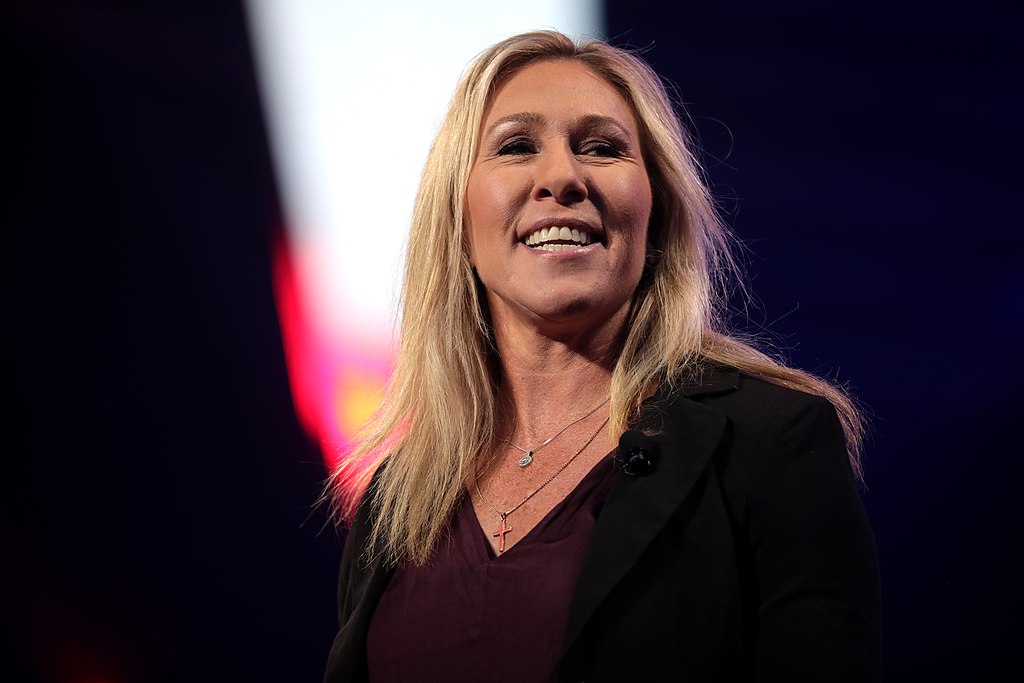In a bold and controversial move, Representative Marjorie Taylor Greene (R-Ga.) has called for the complete public disclosure of the Jeffrey Epstein case files. Greene’s demand includes tapes, recordings, and witness interviews related to the late financier’s alleged illicit activities. Her statement has reignited debates about government transparency and accountability regarding one of the most high-profile scandals in modern history.
Epstein’s connections to powerful figures across industries have fueled years of speculation. Greene’s appeal adds new pressure on federal agencies and officials who have been accused of withholding critical evidence from the public eye. This call for transparency has triggered mixed reactions, ranging from applause for pursuing justice to criticism for potentially jeopardizing ongoing investigations.
A Push for Transparency
During a press conference, Greene emphasized the importance of shedding light on Epstein’s alleged network of collaborators and enablers. "The American people have waited long enough," Greene reportedly stated, alluding to the lack of substantial updates on the case since Epstein’s controversial death in 2019. While many files have been sealed for legal reasons, advocates for disclosure argue that transparency could expose larger systems of corruption.
Greene’s demand extends beyond standard case files, including calls to release unedited tapes, private communications, and any remaining evidence. While the public has long speculated about Epstein’s influence and connections, Greene’s request directly targets agencies like the FBI and Department of Justice, which have faced scrutiny for perceived mishandling of the case.
Opposition and Concerns
Critics have been quick to challenge Greene’s approach, raising concerns about the legal and ethical ramifications of disclosing sensitive information. Legal experts warn that unsealing files prematurely could compromise ongoing investigations or endanger witnesses. Additionally, some argue that Greene’s push could be politically motivated, using the Epstein case as a tool to rally support from her conservative base.
Victims’ advocates, while supportive of greater transparency, have also expressed reservations. “It’s crucial to balance public access to justice with protecting the privacy and safety of survivors,” a spokesperson for a victims’ rights organization said. They added that any disclosure must consider the long-term consequences for those involved.
Public Demand for Accountability
The Epstein case remains a symbol of unanswered questions about the intersection of power, privilege, and criminal behavior. Greene’s call for disclosure taps into widespread frustration over the lack of accountability for those implicated in Epstein’s alleged crimes. High-profile figures tied to the case have faced limited scrutiny, sparking outrage among activists and conspiracy theorists alike.
Next Steps
It remains unclear whether Greene’s demands will lead to concrete action. Congressional hearings on the matter have been sparse, and federal agencies have repeatedly cited legal constraints as reasons for withholding files. However, Greene’s vocal stance could pressure lawmakers to revisit the case and address public demands for greater transparency.
The Debate Continues
As Greene’s statements gain traction, the Epstein files controversy shows no signs of fading. Whether her call will result in significant disclosures or become another flashpoint in political debates remains uncertain. What is clear is that the public’s interest in uncovering the full truth behind the Epstein saga continues to grow.



 Pakistan-Afghanistan Tensions Escalate as Taliban Offer Talks After Airstrikes
Pakistan-Afghanistan Tensions Escalate as Taliban Offer Talks After Airstrikes  U.S.-Israel Strike on Iran Escalates Middle East Conflict, Trump Claims Khamenei Killed
U.S.-Israel Strike on Iran Escalates Middle East Conflict, Trump Claims Khamenei Killed  Zelenskiy Urges Change in Iran After U.S. and Israeli Strikes, Cites Drone Support for Russia
Zelenskiy Urges Change in Iran After U.S. and Israeli Strikes, Cites Drone Support for Russia  Iran Supreme Leader Ayatollah Ali Khamenei Killed in Israeli, U.S. Strikes: Reuters
Iran Supreme Leader Ayatollah Ali Khamenei Killed in Israeli, U.S. Strikes: Reuters  Argentina Tax Reform 2026: President Javier Milei Pushes Lower Taxes and Structural Changes
Argentina Tax Reform 2026: President Javier Milei Pushes Lower Taxes and Structural Changes  Pentagon Leaders Monitor U.S. Iran Operation from Mar-a-Lago
Pentagon Leaders Monitor U.S. Iran Operation from Mar-a-Lago  Israel Declares State of Emergency as Iran Launches Missile Attacks
Israel Declares State of Emergency as Iran Launches Missile Attacks  U.S. Lawmakers Question Trump’s Iran Strategy After Joint U.S.-Israeli Strikes
U.S. Lawmakers Question Trump’s Iran Strategy After Joint U.S.-Israeli Strikes  Suspected Drone Strike Hits RAF Akrotiri Base in Cyprus, Causing Limited Damage
Suspected Drone Strike Hits RAF Akrotiri Base in Cyprus, Causing Limited Damage  U.S. Deploys Tomahawks, B-2 Bombers, F-35 Jets and AI Tools in Operation Epic Fury Against Iran
U.S. Deploys Tomahawks, B-2 Bombers, F-35 Jets and AI Tools in Operation Epic Fury Against Iran  Germany and China Reaffirm Open Trade and Strategic Partnership in Landmark Beijing Visit
Germany and China Reaffirm Open Trade and Strategic Partnership in Landmark Beijing Visit  Trump Announces U.S. Strikes on Iran Navy as Conflict Escalates
Trump Announces U.S. Strikes on Iran Navy as Conflict Escalates  HHS Adds New Members to Vaccine Advisory Panel Amid Legal and Market Uncertainty
HHS Adds New Members to Vaccine Advisory Panel Amid Legal and Market Uncertainty  Middle East Conflict Escalates After Khamenei’s Death as U.S., Israel and Iran Exchange Strikes
Middle East Conflict Escalates After Khamenei’s Death as U.S., Israel and Iran Exchange Strikes  Trump Says U.S. Attacks on Iran Will Continue, Warns of More American Casualties
Trump Says U.S. Attacks on Iran Will Continue, Warns of More American Casualties  Australian PM Calls Alleged Western Australia Terror Plot “Deeply Shocking” After Arrest
Australian PM Calls Alleged Western Australia Terror Plot “Deeply Shocking” After Arrest  Israel Launches Fresh Strikes on Iran After Death of Supreme Leader Ayatollah Khamenei
Israel Launches Fresh Strikes on Iran After Death of Supreme Leader Ayatollah Khamenei 































